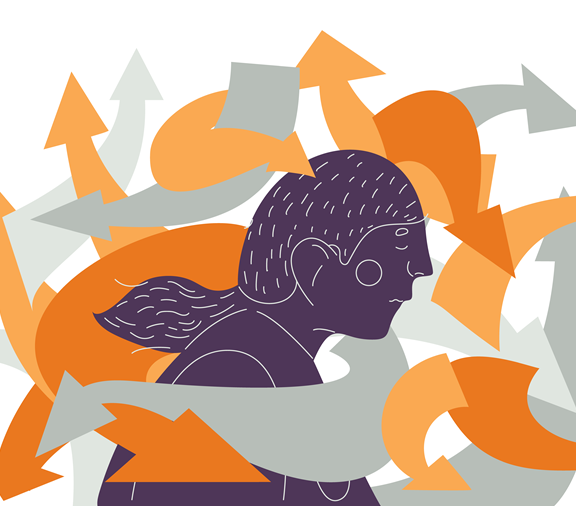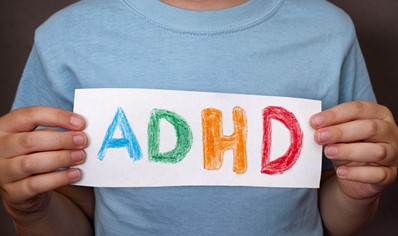
Attention-deficit/hyperactivity disorder, also called “ADHD,” is a common medical condition. Research shows that about one in 20 people have ADHD. However, many people with ADHD may not know they have the condition.
ADHD usually starts in childhood. Children with ADHD may have trouble staying in their seat at school. They may struggle to get their homework done and have a hard time waiting their turn or not interrupting others.
Adults with ADHD often have less hyperactivity than children. However, they still struggle with paying attention, feeling restless, and acting impulsively. This can create stress in their roles as a parent, employee, and community member.
Adults with ADHD can have problems with:
- Starting and completing daily tasks.
- Getting along with family and friends.
- Maintaining routines with exercise, nutrition, and sleep.
- Avoiding drugs or alcohol, infections, illness, and injury.
What are the symptoms of adult ADHD?
People with ADHD may have some, but not all, of the common symptoms.
One person might be more impulsive and hyperactive. Another might be more inattentive, but lower energy. A third person with ADHD might be a combination of inattentive and hyperactive.
Adults with ADHD can struggle with:
- Getting distracted when others are speaking.
- Having a lot of clutter.
- Thinking about many different topics at once.
- Procrastinating over tasks that require close attention.
- Being late or missing deadlines.
- Forgetting to do errands or chores.
- Losing keys, phones, wallets, or other important items.
How is adult ADHD diagnosed?
You might suspect that you have adult ADHD. However, only a doctor or other appropriately licensed clinician can give a formal diagnosis.
According to the Centers for Disease Control and Prevention (CDC), doctors usually follow a set protocol for diagnosing adult ADHD. That protocol includes:
- Using a checklist for rating ADHD symptoms.
- Asking about the person’s medical and mental health history.
- Discussing other health issues such as anxiety, depression, sleep disorders, or substance abuse.
- Learning about signs of ADHD in the person’s childhood.
- Completing a medical and/or psychological exam.
- Determining if the person has anxiety, depression, sleep problems, alcohol or substance misuse, or learning disabilities.
How is adult ADHD treated?
ADHD cannot be cured, but adults can learn to manage the symptoms. Treatment may include one or more of the following:
- Medication
- Therapy
- Changes to diet
- Regular exercise
- Treatment for any other health conditions
ADHD can make life challenging at any age. The good news is that adults with the condition can get help—and thrive.
Need help for depression, anxiety, or other concerns?
We are here to help you with behavioral health treatment for:
- Depression
- Anxiety
- ADHD
- Alcohol and drug use
You do not need approval for individual, family, or group therapy. Also, you do not need a referral from your regular doctor.
English/Spanish interpreter services available 24 hours a day, 7 days a week.
- STAR Medicaid: 1-888-672-2277
- CHIP/CHIP Perinate: 1-888-814-2352
- TTY 7-1-1
Available from 8 am to 5 pm CST, Monday - Friday (except state holidays). Leave a voice message during non-business hours and on weekends.



